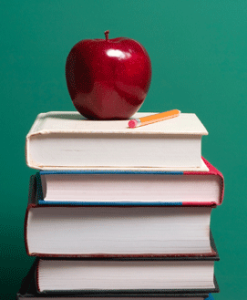Jan
2014
How Modern Performance Assessments Can Affect Both Learning And Teaching
There is new evidence that teacher evaluation, via traditional walk-through methods, with a bit of a twist, can actually improve both teaching and learning.
 Modern teacher evaluation systems have become a more common part of school reform efforts. This is in an effort to reveal new and systematic information about the actual performance of actual classroom teachers.
Modern teacher evaluation systems have become a more common part of school reform efforts. This is in an effort to reveal new and systematic information about the actual performance of actual classroom teachers.
One practice that is being seen in a more wide-spread area is practice based assessments, which rely on the highly structured observations that are performed multiple times a year. These observations are completed by both administrators and by peer teachers. This approach is one that contrasts the traditional principal observations of the past. It is being used more and more with other steps, including teacher incentives that are based on the performance of students in their classroom.
Those supporting these evaluations systems, which include the classroom observations, highlight their potential value and the ability for them to improve the learning environment. The fact is that the actual information that is available in regards to the performance of individual teachers is particularly lax for the teaching profession, which suggests that there is a lack of information of how teacher performance may be improved. An evaluation that has been well-designed, may be able to fill in this gap in information in a number of ways, which include:
- Teachers will be able to gain information and insight with the formal feedback and scoring that is provided by an evaluation program;
- The evaluation may actually encourage a teacher to take more time to reflect on their performance;
- The evaluation may present more opportunities for a conversation with administrators, as well as other teachers, about what practices are effective.
There is no question these evaluations may be able to have long-term effects on the performance of individual teachers. The fact is that the actual results of these evaluations are still mostly speculation, due to the fact that very few schools, districts or states have implemented these practices. However, there have been some research results, which have proven that the potential effectiveness may be enough to try out this type of teacher evaluation.
It has been found that teachers seem to be more effective at increasing their student’s achievement during the year in instances where they are being evaluated more than they were previously, and even more effective in the years following the evaluation. The fact is that this provides a unique opportunity for teachers to learn what they could do differently to become more effective in the classroom.
While the actual effectiveness of this strategy is still somewhat unknown due to the limited information, it has merits to become a form of evaluation that is embraced around the nation. If it promotes a better learning and teaching environment for both teachers and students, it is a method worth exploring further. The benefit of peer teacher evaluation is the meshing of ideas from teachers that may be teaching the same grade, or even different grades.
The implementation of this practice could be extremely beneficial in the classroom, which will enhance the experience of both teachers and students.


